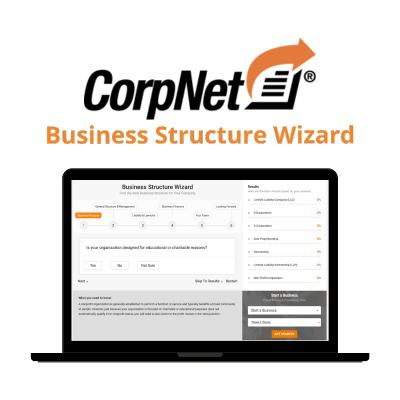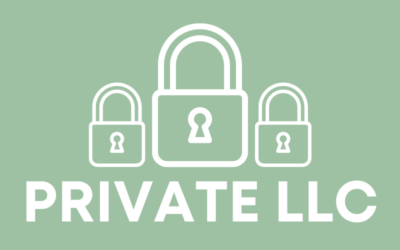If you’re starting a new businessm adding new locations, or adding business lines, you are likely wondering if registering a DBA or forming an LLC is the best route to travel.
A DBA is an assumed (fictitious) name that an existing business has received approval to use when conducting business. An LLC is a registered business entity.
Both options provide a way to operate under a business name other than a company’s legal name. But in addition to that similarity, they have significant differences. Choosing one or the other affects a company’s costs, compliance requirements, and other aspects of operating the business.
What Is a DBA?
A DBA or Doing Business As is a fictitious name registration (also known as a trade name or assumed name) that allows a business to operate under a name other than its legal name.
It’s important to know that approval of a DBA does not:
- Guarantee a business an exclusive right to its fictitious name
- Create a separate legal entity
- Offer personal liability protection
DBAs for Sole Proprietorships and Partnerships
A disregarded entity, like a sole proprietorship or partnership, may file a DBA and conduct business under that name instead of the owners’ names.
For example, suppose someone named Josie Newman plans to open a gift boutique and wants to use the name “Extraordinary Finds Gift Emporium” rather than something like “Josie Newman’s Gift Shop.” If she files (and gets approved for) “Extraordinary Finds Gift Emporium” as a DBA, she can use that fictitious name on her signs, business cards, website, and other marketing materials. She could even set up a bank account under her DBA name.
DBAs for LLCs and Corporations
A formally registered business entity, like a limited liability company or corporation, may file a DBA and conduct business under that name instead of the legal name on its registered organizational or incorporation documents filed with the state.
For instance, let’s say a restaurant is operating as an LLC registered as “Diane’s Hometown Diner, LLC.“ Suppose Diane wants to expand her offerings by providing catering services, and she wants to use the name “First-Class Catering” for that line of business. To accomplish that, she could file “First-Class Catering” as a DBA to get state approval to use that name without having to start an entirely separate company.
DBA Name Restrictions
Before filing a DBA, it’s important that entrepreneurs do a business name search to make sure their desired name isn’t already used by another business entity within the state. If the type of business conducted is similar or closely related, it’s likely the state won’t approve the fictitious name. Also, it’s beneficial to check to make sure no business in the U.S. has a registered trademark claim on the name.
Business owners must also be aware that each state has its own rules for what can or cannot be included in a business name.
Typically prohibited are acronyms or words that will mislead the public into thinking a business is something it’s not. For example, abbreviations and acronyms like “Inc.”, “LLC,” “Assoc.”, etc. may not be part of a DBA. States may also prohibit words such as “bank,” “trust,” “foundation,” “United States,” and “school” or “university.”
Generally, states also require that businesses don’t use obscene words or words that promote illegal activity in their names.
Why DBAs Must Be Filed With the State
States (and sometimes local governments) require that businesses register their DBAs so that the public and consumers know who owns and operates any business that uses a fictitious name. That disclosure is a means for helping to protect customers from shady entrepreneurs who have a reputation for doing business badly. Business owners may not use a term like “LLC” or “Inc.” behind a fictitious name because a DBA is not a legal entity in and of itself.
Several states require that the business owner filing for a DBA publishes an advertisement or notice in a general circulation newspaper or legal publication — or both — usually within the county where the fictitious name is filed.
What Is an LLC?
A Limited Liability Company (LLC) is a state-registered legal entity. Its official legal name is whatever name is on its formation documents (Articles of Organization). An LLC’s legal name does not have to include the name of its owners; it can be a fictitious name. If an LLC uses a fictitious name as its legal name, it does not have to complete a DBA filing; the business name is registered officially when the LLC’s articles of formation are approved.
LLC Name Restrictions
When forming an LLC, entrepreneurs must heed any exclusions and restrictions their state enforces. For the most part, the rules for registering an LLC’s name are similar to those when filing a DBA.
An LLC may not use a name that’s:
- Prohibited by the state
- Already used by another business entity within the state of registration
- Already used by a business anywhere in the U.S. that has a registered trademark claim on the name
Differences Between a DBA and an LLC
1. Formation Paperwork and Compliance
Filing a DBA is a simple process, requiring completing and submitting a form to the Secretary of State or other business agency to request permission to use a desired fictitious name. Generally, states require a relatively minimal one-time fee. Many states require DBAs to be renewed periodically — which can range from one year to ten years depending on the state. Otherwise, there are no ongoing business formalities (like annual reports or licenses) associated with a DBA name.
Forming a limited liability company requires completing and filing Articles of Organization (sometimes called a Certificate of Organization) with the state and paying an entity registration fee. There may be other filings, fees, reports, and requirements to fulfill as well. The requirements vary by state. Also, LLCs are governed by their LLC Operating Agreement, so owners (called members) must abide by that document’s provisions regarding the management of the company, distributions of profits, resolution of disputes among members, etc.
LLC Compliance Task Examples
- Designating a registered agent
- Obtaining business licenses and permits
- Applying for an EIN (Federal Tax ID Number)
- Filing Annual Reports
- Paying an LLC franchise tax
- Holding an Annual Meeting and recording minutes
2. Business Name Protection
When someone registers a DBA, it does not typically give them exclusive rights to use that name. Other companies may also be able to use the name in the state. While a few states protect registered fictitious names by refusing to approve overly alike names, most do not guarantee exclusivity.
Establishing an LLC offers more business name protection because the state will not usually allow the formation of another company (or a DBA) with that same name. However, if a business name is used by a company that provides products or services very different from the LLC that wants to use the name, the state might allow both companies to use the name.
Business owners can apply for a federal trademark through the United States Patent and Trademark Office (USPTO) for more extensive business name protection.
3. Business Owner Liability
A DBA does not create a business entity that is legally separate from its owners. It’s merely a name, not an entity independent from the sole proprietor, partners, or business entity that has registered to use it. So, the individual(s) or business entity responsible for the DBA is liable for any legal actions or financial problems associated with it. In the case of sole proprietors and partnerships, the individual owners’ personal property (including their home), retirement savings, bank accounts, and other assets are at risk.
An LLC, on the other hand, is a legal entity independent of its owners. That means, under most circumstances, an LLC’s members are not personally liable for the debts or legal issues of the business. As you can imagine, this offers peace of mind for entrepreneurs who want to protect their personal assets!
4. Taxes
Sole proprietorships and partnerships that operate under a DBA only have one income tax option; they are taxed as pass-through entities. All income and losses for the DBA flow through to the owners’ personal income tax returns and all profits are subject to income tax and self-employment taxes (Medicare and Social Security).
Similarly, if an LLC or corporation uses a DBA, any taxes associated with the business activity conducted under the DBA flows through to the LLC’s or corporation’s tax return. LLCs that meet the IRS’s eligibility requirements have the option of electing S Corporation tax treatment. So, instead of all business profits being subject to Social Security and Medicare taxes, only owners’ wages and salaries have those taxes levied on them. For some entrepreneurs, this might lower their overall tax burden.
Advantages and Disadvantages
To recap everything I’ve shared above, below is a glance at the potential advantages and drawbacks of a DBA vs. LLC.
DBA Advantages
- Allows sole proprietorships and partnership to creatively name their businesses
- Easy and inexpensive to establish
- Less compliance than an LLC
- Tax obligations flow through to the business owner’s tax return
LLC Advantages
- Helps prevent other businesses from using the same name in the state (a.k.a., name exclusivity)
- Establishes an independent legal entity
- Offers personal liability protection for the business owner
- Offers tax flexibility to potentially reduce a business owner’s tax liability
DBA Disadvantages
- Does not protect the name from being used by others (no name exclusivity) — in most states
- Does not establish a separate legal entity
- Does not offer personal liability protection to the business owner
- Offers no tax flexibility or savings
LLC Disadvantages
- Requires more paperwork and time to establish
- Costs more to set up and maintain
- Comes with ongoing business compliance requirements
Which One is Right for Your Business?
That’s a question to discuss with an attorney, accountant, and tax advisor! There are legal and financial ramifications when choosing how to structure and name a business. So, entrepreneurs should seek licensed professionals who can assess their specific situation and guide them to what will offer the best results.
Know that CorpNet is here as a resource, too! We can help you with business name searches to explore if the name you wish to use is available. And, after you’ve gotten expert guidance from your lawyer and tax advisor, we can handle all your essential filings to get your DBA or LLC up and running.

Choosing a business structure can be a tough decision for the new business owner. CorpNet wants to make the process easier.
This free, online tool helps small business owners navigate the process of picking the right business structure for their new business.





